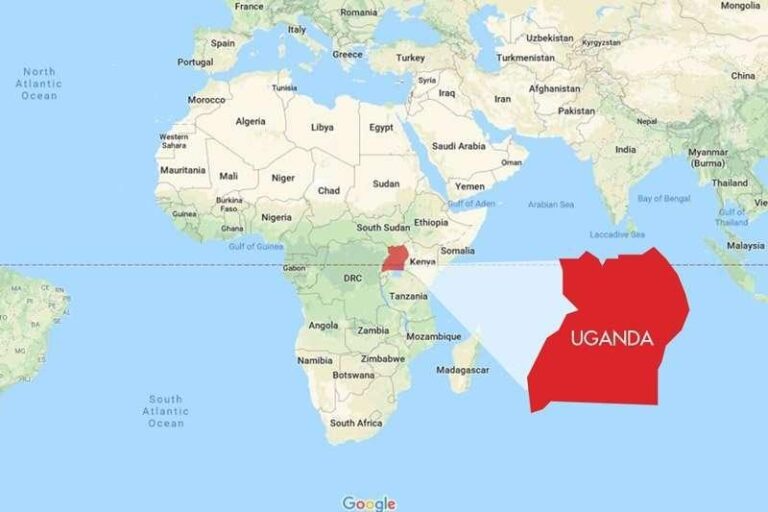uganda’s Military Cooperation Suspension: A New chapter in Geopolitical Relations
In a notable shift within the realm of international military relations, Uganda has declared the suspension of its defense collaboration with Germany, a decision that has been officially acknowledged by the Ugandan Army. This action emerges amidst escalating tensions and highlights the intricate nature of geopolitical alliances in East Africa. While officials have not disclosed specific reasons for this suspension, it reflects the changing dynamics between Uganda and European nations concerning defense partnerships. As security challenges continue to loom over the region, this development could have implications that extend beyond bilateral relations, possibly influencing broader security frameworks across East africa. This article explores the context behind Uganda’s decision and its potential ramifications on military alliances and regional stability.
Uganda’s Defense Strategy Reassessment: The suspension explained
In a decisive move regarding its defense policy, Uganda has formally announced an end to military cooperation with Germany. This decision appears to be driven by various geopolitical considerations as Uganda seeks to reevaluate its international partnerships considering shifting security landscapes within the region. Historically, cooperation with germany has centered around joint training initiatives, capacity enhancement programs, and equipment provision—efforts aimed at modernizing Uganda’s armed forces. Though, recent tensions coupled with perceived imbalances in mutual defense commitments may have catalyzed this sudden reassessment.
The consequences stemming from this suspension could significantly impact not only uganda’s defensive posture but also regional stability as a whole. Key factors include:
- Disruption of Security Collaborations: The cessation of cooperation may interrupt ongoing joint exercises and intelligence-sharing protocols.
- Evolving Alliances: In response to these changes, Uganda might pursue stronger relationships with alternative partners that better align with its current strategic objectives.
- Shifts in Regional Power Dynamics: The reallocation of military resources could alter power balances throughout East Africa.
regional Security Implications Following Suspension of Ties
The recent announcement from Uganda regarding its halt on military collaboration with germany signifies a pivotal change within East Africa’s geopolitical framework. This action is poised to yield extensive repercussions not just for bilateral relations but also for overarching regional security structures. Neighboring countries may find themselves compelled to reassess their own military partnerships and strategies due to this new stance from Kampala; such shifts could lead to heightened tensions among neighboring states as they scramble for alternative alliances or support systems.
This transition towards greater autonomy by Uganda raises concerns about potential instability within existing coalitions while attracting scrutiny from both local stakeholders and international observers alike.
This situation might also prompt a reevaluation of arms procurement channels across the region leading to several key outcomes:
- Enhanced Local Military Capabilities: There might potentially be an increased focus on strengthening domestic forces wich can shift existing power balances.
- Counters against Militant Threats: Ongoing counterterrorism operations might face hurdles without established support networks previously provided by external partners like Germany.
- Pursuit of New Alignments: Nations such as Kenya,Rwanda,and Tanzania might adjust their military strategies either seeking new collaborations or recalibrating responses against shifts initiated by Ugandan policies.
Strategies for Strengthening Relations Between Uganda and Germany
If both nations aim at rebuilding their relationship post-suspension effectively they should consider implementing diverse strategies focused on fostering mutual understanding through enhanced dialog opportunities.
Diplomatic Engagements: High-level visits can facilitate personal interactions between leaders allowing discussions surrounding shared concerns along with partnership prospects.
cultural Exchange Initiatives: Programs showcasing art forms music traditions culinary experiences can definitely help cultivate goodwill enhancing interpersonal connections between citizens.
Eeconomic Collaboration opportunities: Joint ventures targeting sectors like renewable energy agriculture technology hold promise for substantial benefits while establishing trade agreements would streamline commercial exchanges injecting fresh investments into emerging markets like those found in Uganda.
Additionally forming dedicated task forces aimed at conflict resolution/security collaboration ensures proactive measures are taken addressing underlying issues before they escalate further.
Conclusion & Key Insights
The suspension enacted by Uganda concerning military ties with Germany represents an meaningful turning point affecting bilateral relations raising critical questions about future defense collaborations throughout East African territories. Various factors contributing towards this decision highlight complexities faced when navigating global alliances. As both parties reconsider engagement approaches implications arising from these developments will likely extend beyond mere militaristic aspects impacting trade diplomatic interactions overall regional equilibrium moving forward.




